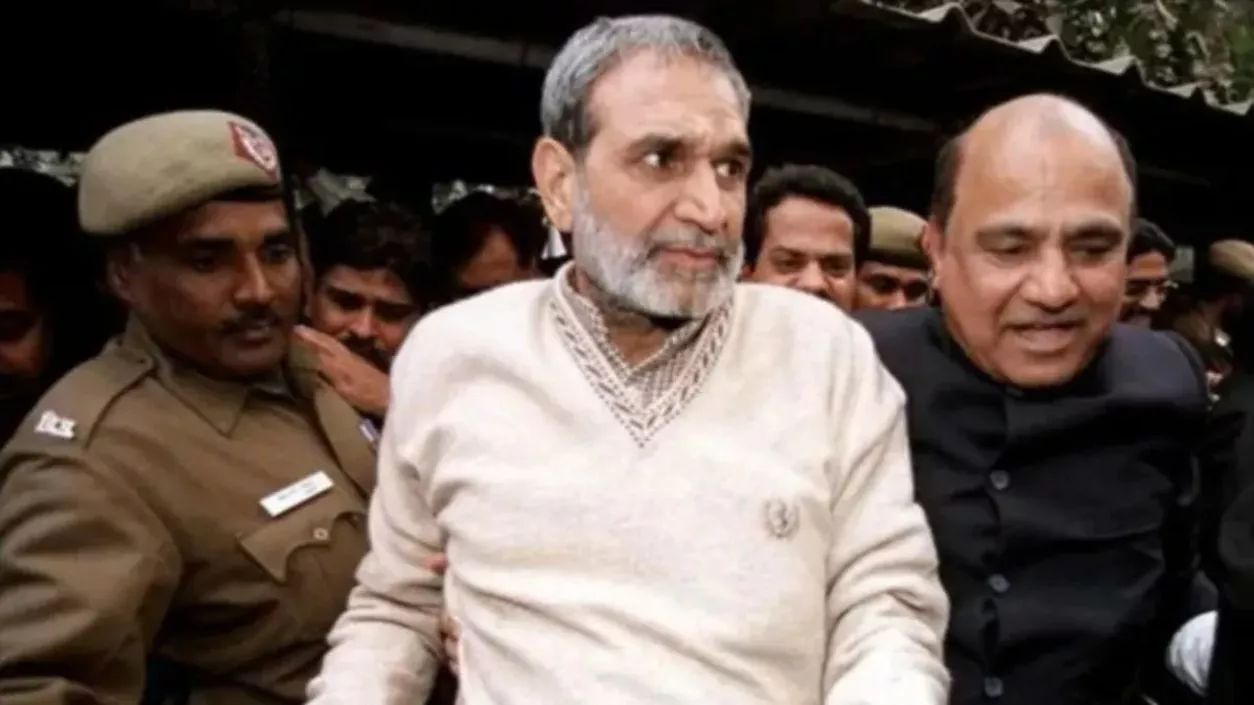.gif)
.gif)

A Delhi court on Tuesday sentenced former Congress MP Sajjan Kumar to life imprisonment in a 1984 anti-Sikh riots case related to the murder of Jaswant Singh and his son Tarundeep Singh on November 1, 1984. Special Judge Kaveri Baweja delivered the verdict, convicting Kumar for leading a mob that attacked Sikh families in the aftermath of Prime Minister Indira Gandhi’s assassination.
The prosecution alleged that a large mob, armed with deadly weapons, carried out looting, arson, and targeted killings of Sikhs in retaliation for Indira Gandhi’s assassination by her Sikh bodyguards. The complainant, Jaswant Singh’s wife, accused Kumar of inciting the mob, which led to the killing of her husband and son and the destruction of their home. Seeking the maximum penalty, her counsel HS Phoolka argued that “the accused, as the leader of the mob, incited others to carry out genocide, crimes against humanity, and cold-blooded murders.”
Kumar had been convicted on February 12, following which the court ordered a psychiatric and psychological evaluation from Tihar Jail authorities, in compliance with a Supreme Court directive for cases attracting capital punishment. The court, however, sentenced him to life imprisonment, the minimum penalty for murder under Indian law. Kumar remains lodged in Tihar Jail, where he is already serving a life sentence in a separate case for the murder of five Sikhs in Delhi Cantonment’s Raj Nagar area during the riots.
The case was initially registered at Punjabi Bagh Police Station but was later taken over by a Special Investigation Team (SIT), which re-examined multiple riot cases. The Nanavati Commission, set up to investigate the 1984 violence, reported that 2,733 Sikhs were killed in Delhi, with 587 FIRs filed. However, 240 cases were closed as ‘untraced’, 250 ended in acquittals, and only 28 cases resulted in convictions. Around 400 people were convicted, including 50 for murder, with Kumar among them.
Kumar was also accused of leading mobs that killed Sikhs in Palam Colony on November 1 and 2, 1984. In 2018, the Delhi High Court convicted him in that case, sentencing him to life imprisonment for his role in the killings. His appeal against that conviction is pending before the Supreme Court. The latest sentencing adds to the long-drawn legal proceedings surrounding the 1984 anti-Sikh riots, which saw multiple political leaders accused of inciting violence.
The riots broke out following the assassination of Indira Gandhi on October 31, 1984, by her Sikh bodyguards Beant Singh and Satwant Singh, after Operation Blue Star, a military offensive in Amritsar’s Golden Temple. Widespread violence erupted across Delhi and other parts of India, targeting Sikh homes, businesses, and religious places. Multiple commissions and investigations have examined the killings, with several cases still pending in courts.